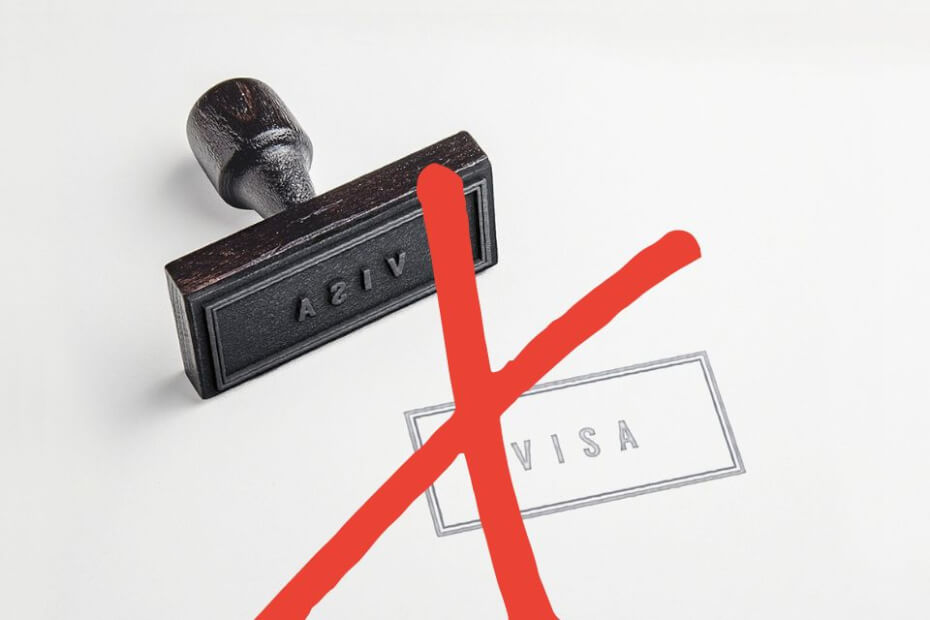
Recent research has highlighted a concerning trend: the United Kingdom (UK) and the European Union (EU) profit significantly from rejected visa applications.
According to a study by the LAGO Collective, a research group focused on arts and migration, visa rejections have become a booming income source for European nations.
In 2023, the UK raised £44 million in fees for visa application fees that were then rejected.
Conversely, the EU made £110 million (€130m) from rejected visa application fees.
The analysis was based on data from the EU Directorate-General for Migration and Home Affairs and the UK Home Office.
“Visa inequality has very tangible consequences, and the world’s poorest pay the price,” said LAGO founder Marta Foresti.
This issue has sparked criticism, particularly from African and Asian communities, who feel they are unfairly discriminated against.
Visa rejections are a growing concern
The UK and European countries have collectively earned millions from visa fees, even when applications are denied.
This practice has been criticized as exploitative, mainly because the fees are non-refundable.
The analysis showed the rejected applicants mainly come from low- and middle-income countries.
This issue is particularly pronounced for applicants from African and Asian countries.
African travelers experienced significantly higher rates of visa rejections, with some facing rates as high as 40 to 70 percent.
The analysis shows that rejection rates for EU visas are notably high for countries like Nigeria, Ghana, and Senegal, ranging from 40% to 47%.
In the UK, Algeria has the highest visa-rejection rate, at 71 percent, followed by Bangladesh at 53 percent.
Visa rejection rates for Ghana, Pakistan, and Nigeria in the UK range between 30 percent and 46 percent
Many individuals from these regions apply for visas to visit, work, or study in Europe but face high rejection rates.
Impact on musicians, artists
One of the groups most affected by this practice is musicians and artists from Africa and Asia.
These individuals often seek visas to perform or exhibit their work in Europe, but many face visa refusals.
This impacts their careers and deprives European audiences of diverse cultural experiences.
African and Asian musicians and artists have condemned the visa application process as humiliating and discriminatory.
“The idea is that you are not welcome,” Lemn Sissay, a British poet and broadcaster with Ethiopian roots, told The Guardian.
His team did not encounter visa issues during the 2024 Ethiopian exhibit, but he noted that other Africans did.
Ahmad Sarmast, director of the Portugal-based Afghan Youth Orchestra, was surprised when 47 members were denied UK visas in March for their England tour.
The musicians obtained residency rights in Portugal after escaping the Taliban and have performed in Italy, France, Switzerland, and Germany.
Samast said they provided copies of Portuguese residence cards and other documentation, but many still got rejected.
After much protests, the Home Office later granted visas to Afghan musicians aged between 14 and 22.
The Home Office stopped using a controversial algorithm for UK visa decisions in 2020.
This change came after migrant rights groups sued, saying the system was biased against people of color.
Now, the Home Office uses a different system called a “complexity routing tool.”
This new tool assesses how complex an application might be based on information provided by the applicant.
Increase in visa application fees
Total visa fees will likely increase in 2024 as the UK and EU increase visa application fees.
The UK Standard Visitor visa application fee for short visits to the UK hiked from £100 to £115 in October last year.
In June this year, the EU’s short-stay Schengen visa application fees rose from £68 (€80) to £76 (€90).
The European Commission justified the visa fee hike as necessary to cover the costs of processing applications and ensuring border security.
The EU also cited rising inflation and civil servant salaries as reasons for the Schengen visa fee increase.
Adding to the complexity of travel to the UK and Europe, new travel authorization systems will be implemented.
These systems aim to enhance security, streamline entry processes, and introduce additional costs and requirements for travelers.
The UK also rolled out its UK Electronic Travel Authorization (ETA) for short-stay non-visa nationals visiting the UK in November 2023.
Currently, citizens from select Gulf countries must have an ETA before traveling to the UK.
The Home Office has plans for a broader implementation to all non-visa nationals by 2024.
The EU will also launch its European Travel Information and Authorization System (ETIAS) for short-stay non-visa travelers to the Schengen Zone in mid-2025.
A UK ETA costs £10, while an ETIAS costs £6 (€7) and are valid for two and three years, respectively.
The travel authorization application fees are also non-refundable if the applicant is refused.

